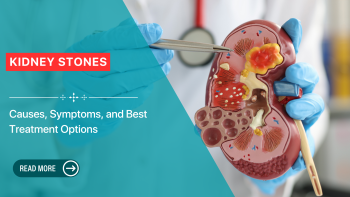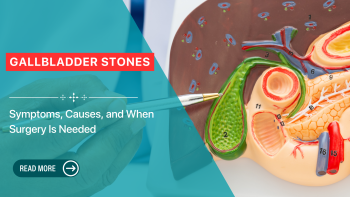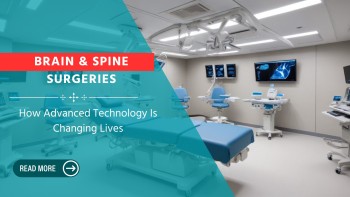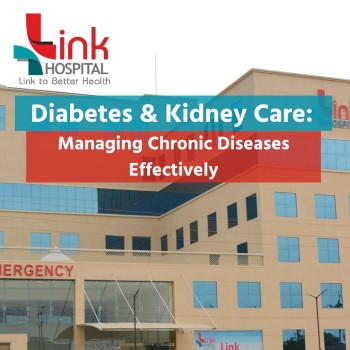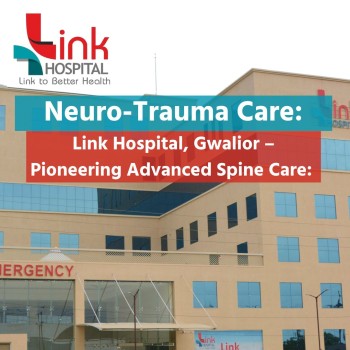Hypertension: High blood pressure, also known as hypertension, is often referred to as the “silent killer” for a reason. It typically presents no symptoms but quietly damages blood vessels and critical organs over time. Among all organs, the heart is the most severely affected. As cardiovascular diseases continue to be one of the leading causes of death globally, understanding the connection between high blood pressure and heart health is crucial for prevention, early diagnosis, and timely treatment.
What is High Blood Pressure?
High blood pressure occurs when the force of blood pushing against artery walls is consistently too high. A normal reading is below 120/80 mmHg, while readings consistently above 130/80 mmHg are considered hypertensive.
Causes of High Blood
Pressure
●
Genetics and family history
●
Obesity and a sedentary lifestyle
●
High salt and processed food intake
●
Chronic stress
●
Smoking and alcohol consumption
●
Underlying conditions like diabetes or kidney disease
How High Blood Pressure
Affects the Heart
When blood pressure is elevated over a
prolonged period, the heart and arteries must work harder to pump and circulate
blood. This overexertion causes several harmful effects:
1. Increased Risk of
Heart Attack
High blood pressure accelerates the
buildup of plaque in the arteries
(atherosclerosis). These narrowed or blocked arteries reduce blood flow to
the heart muscle, potentially leading to a heart
attack.
2. Heart Failure
The heart must pump harder against
elevated pressure, causing the heart
muscles to thicken (left ventricular hypertrophy). Over time, the heart
becomes too weak or stiff to function efficiently, resulting in heart failure.
3. Arrhythmias (Irregular
Heartbeats)
Hypertension can lead to electrical disruptions in the heart,
increasing the risk of arrhythmias. Atrial fibrillation, the most common
arrhythmia, can further heighten the risk of stroke and cardiac complications.
4. Enlarged Heart
An enlarged heart struggles to pump blood
efficiently, leading to fatigue, breathlessness, and swelling. If untreated,
this condition can lead to severe cardiac complications or even sudden cardiac arrest.
5. Damage to Arteries
Persistent high blood pressure can damage the inner lining of arteries, making them less elastic and more prone to rupture or blockage. This can cause aneurysms and increase the risk of stroke and coronary artery disease.
Warning Signs and When to
Seek Help
While hypertension is mostly
asymptomatic, it can sometimes present subtle signs such as:
●
Frequent headaches
●
Chest pain or tightness
●
Shortness of breath
●
Irregular heartbeat
●
Fatigue
●
Blurred vision
If you experience any of these symptoms,
it is critical to consult a healthcare
professional for evaluation.
Prevention and Management of
High Blood Pressure
Lifestyle Modifications
●
Adopt a heart-healthy diet: Focus on fruits,
vegetables, whole grains, and lean proteins. Limit salt and saturated fats.
●
Regular exercise: Aim for at least 30 minutes
of moderate activity most days.
●
Maintain a healthy weight
●
Quit smoking and limit alcohol
●
Manage stress through yoga, meditation, or relaxation techniques
Medical Management
In many cases, medications may be required to control blood pressure. These should
always be taken under the supervision of a qualified doctor.
Trust Link Hospital, Gwalior:
Your Partner in Heart Health
When it comes to cardiovascular care, Link
Hospital in Gwalior is a name you can trust. Equipped with state-of-the-art cardiac facilities,
experienced cardiologists and cardiac
surgeons, and advanced diagnostic
tools, Link Hospital offers comprehensive
treatment for high blood pressure and heart-related conditions.
Whether you need routine check-ups, 24x7 emergency care, diagnostic evaluations, or
specialized cardiac interventions, Link Hospital ensures timely and
effective treatment for all cardiac issues under one roof.
Take Control of Your Heart
Health Today
Don’t
let high blood pressure silently damage your heart.
Early detection and timely management are key to living a longer, healthier
life. If you or a loved one is at risk or already dealing with hypertension,
now is the time to act.
Book
your heart health check-up today at Link Hospital, Gwalior.
Contact
us now for expert consultation, accurate diagnosis,
and personalized treatment plans that prioritise your well-being. Your heart deserves the best care—Link
Hospital is here to provide it.

